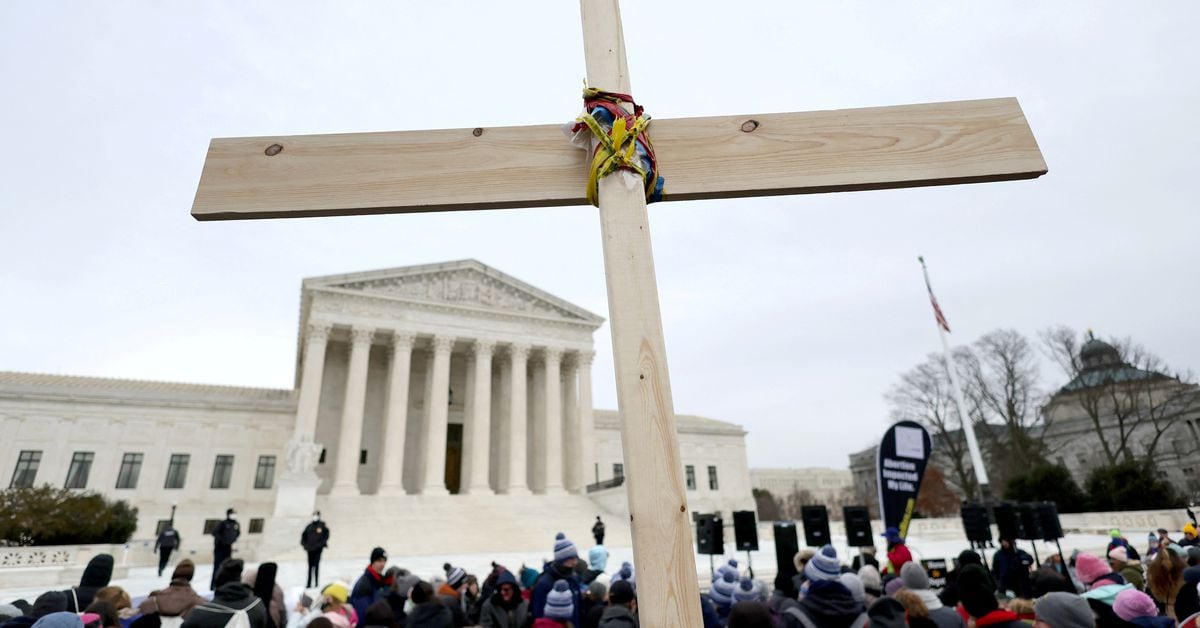It’s just a matter of time …if certain people get their way:
Evidence from 2022:

 www.reuters.com
www.reuters.com
WASHINGTON, June 28 (Reuters) - The conservative-majority U.S. Supreme Court has chipped away at the wall separating church and state in a series of new rulings, eroding American legal traditions intended to prevent government officials from promoting any particular faith.
In three decisions in the past eight weeks, the court has ruled against government officials whose policies and actions were taken to avoid violating the U.S. Constitution's First Amendment prohibition on governmental endorsement of religion - known as the "establishment clause."
The court on Monday backed a Washington state public high school football coach who was suspended by a local school district for refusing to stop leading Christian prayers with players on the field after games. read more
On June 21, it endorsed taxpayer money paying for students to attend religious schools under a Maine tuition assistance program in rural areas lacking nearby public high schools. read more
On May 2, it ruled in favor of a Christian group that sought to fly a flag emblazoned with a cross at Boston city hall under a program aimed at promoting diversity and tolerance among the city's different communities. read more
Evidence from 2022:
U.S. Supreme Court takes aim at separation of church and state

U.S. Supreme Court takes aim at separation of church and state
The conservative-majority U.S. Supreme Court has chipped away at the wall separating church and state in a series of new rulings, eroding American legal traditions intended to prevent government officials from promoting any particular faith.
WASHINGTON, June 28 (Reuters) - The conservative-majority U.S. Supreme Court has chipped away at the wall separating church and state in a series of new rulings, eroding American legal traditions intended to prevent government officials from promoting any particular faith.
In three decisions in the past eight weeks, the court has ruled against government officials whose policies and actions were taken to avoid violating the U.S. Constitution's First Amendment prohibition on governmental endorsement of religion - known as the "establishment clause."
The court on Monday backed a Washington state public high school football coach who was suspended by a local school district for refusing to stop leading Christian prayers with players on the field after games. read more
On June 21, it endorsed taxpayer money paying for students to attend religious schools under a Maine tuition assistance program in rural areas lacking nearby public high schools. read more
On May 2, it ruled in favor of a Christian group that sought to fly a flag emblazoned with a cross at Boston city hall under a program aimed at promoting diversity and tolerance among the city's different communities. read more
- Is seperation of church and state a real thing? YES, it is, the Establishment Clause and a famous statement from Thomas Jefferson that the Establishment Clause is the wall between Church and State.
- But then there are certain Christians who think that freedom of religion means freedom to shove your religion down other people’s throats. When it actually means freedom to practise your religion, not shoving it down other people’s throats, and for the other half, freedom from religion.
Last edited:
